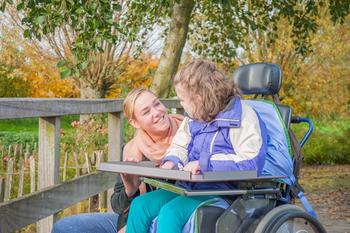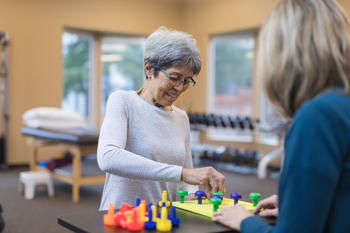
Fieldwork an integral part of the occupational therapy curriculum
According to the Accreditation Council for Occupational Therapy Education (ACOTE) 2023 Standards, “Fieldwork education is a crucial part of professional preparation and is best integrated as a component of the curriculum design. The fieldwork experience is designed to promote professional reasoning and reflective practice, transmit the values and beliefs that enable ethical practice, and develop professionalism and competence in career responsibilities. Fieldwork…. should provide the student with the opportunity to carry out professional responsibilities under the supervision of qualified personnel serving as a role model.” (ACOTE, 2023 p.36)
Components of Fieldwork
Fieldwork is divided into 2 components – Level I and Level II. Level I fieldwork is designed to “introduce students to fieldwork, apply knowledge to practice, and develop understanding of the needs of clients.” (ACOTE, 2023 p.38). Level I fieldwork occurs during the 2nd and 4th semesters and exposes students to individuals and groups, of all ages and socioeconomic and sociocultural contexts. There may or may not be occupational therapy services or providers at the sites. Settings can include schools, pediatric clinics, skilled nursing facilities, outpatient clinics, inpatient programs, or community based programs. Students may be supervised by qualified personnel who are knowledgeable about the profession, the program, and the goals of fieldwork. These can include teachers, social workers, nurses, speech-language pathologists, or others. Level I fieldwork is typically ½ day, 1 or 2 times during the week, but may occur outside of regular school hours. Placements are determined to provide a wide exposure to students and to complement the curriculum. They are usually within 45 minutes of campus.

Goals
The goal of Level II fieldwork is to “develop competent, entry-level, generalist occupational therapists… and must include an in-depth experience in delivering occupational therapy services to clients, focusing on the application of purposeful and meaningful occupation and research, administration, and management of occupational therapy services.” (ACOTE, 2023 p.39) Level II placements are full-time for 12 weeks. They will occur in semesters 5 and 6. The 2 placements will occur in different settings to provide students with varied exposure and preparation to sit for the certification examination. Level II fieldwork must be supervised by an experienced occupational therapist, who will provide decreasing supervision as the student gains experience and competence. During these experiences, students will be responsible for assessment, treatment planning, treatment intervention, treatment modification, equipment recommendations, and interprofessional communication and collaboration as needed for an increasing caseload of patients or clients. Placements are determined by student interest, skills, and location. Efforts are made to provide placements within a 1 hour driving distance for the student.
ACOTE (2023) 2023 ACOTE Standards and Interpretive Guide https://acoteonline.org/accreditation-explained/standards/